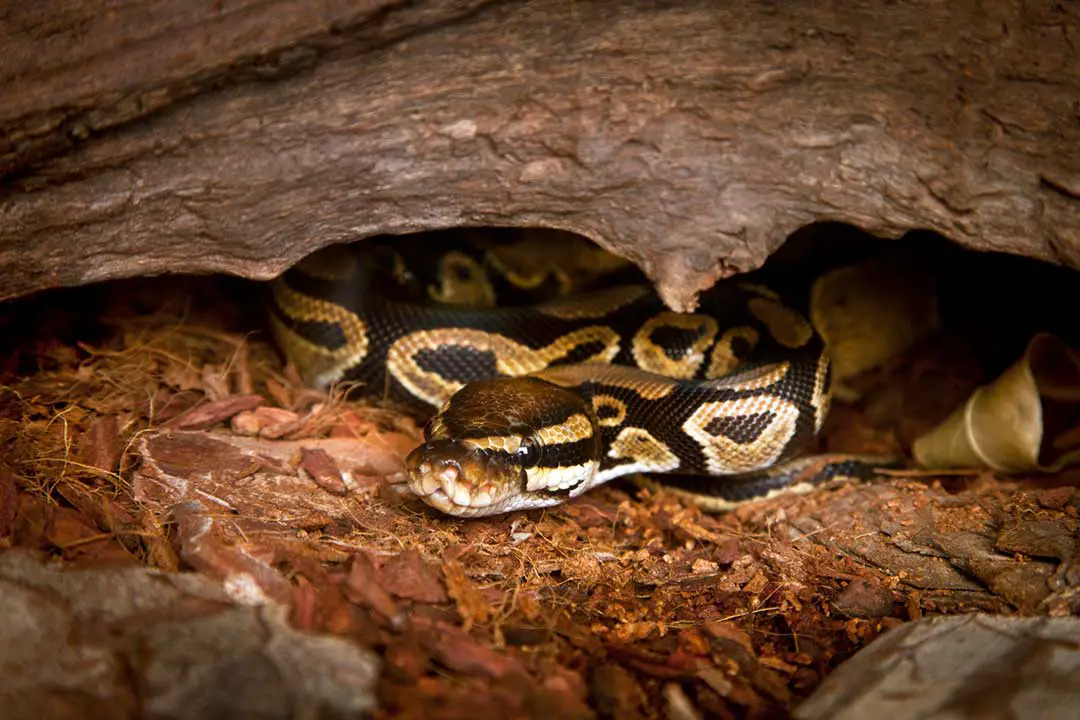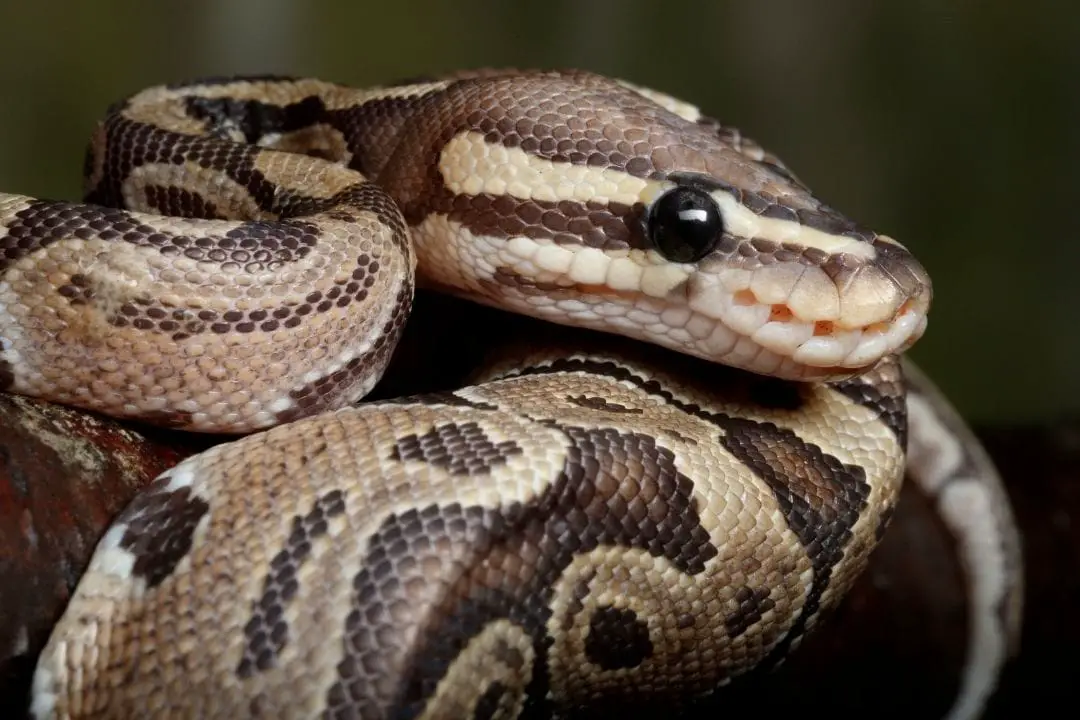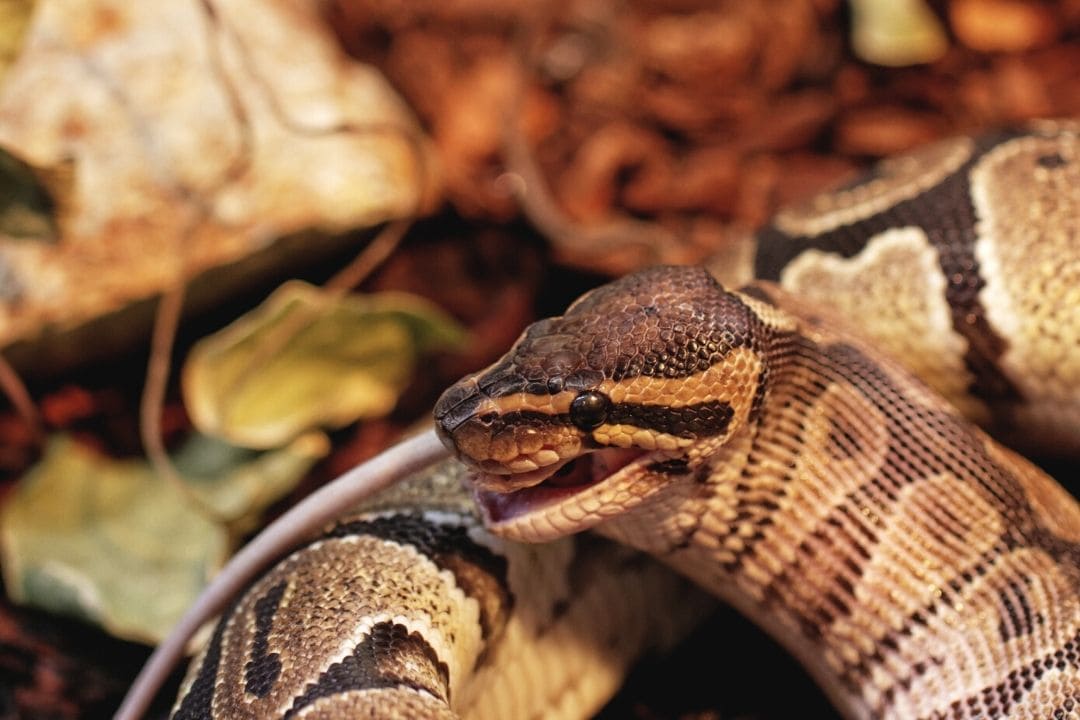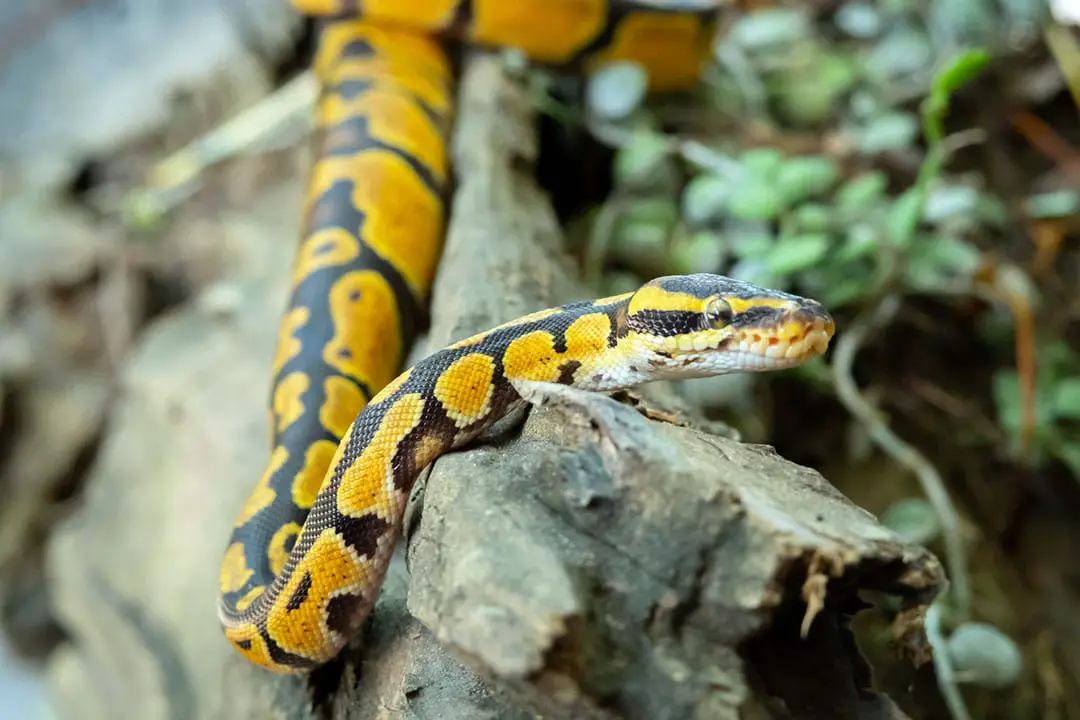Ball pythons (Python regius) are known as being docile snakes. They make great pets thanks to a calm and curious demeanor as adults.
However, they can show their displeasure if they aren’t being treated well. If this happens to you, you may be wondering why your ball python is hissing at you.
A Ball python is hissing because it is trying to communicate that it wants to be left alone. A scared or stressed ball python may hiss to express its displeasure. There are a few reasons why your ball python is likely hissing.
Defensive Behavior
Hissing is one of the most common and famous defensive behaviors in snakes. A snake that is upset will puff up and forcefully expel air.
This results in a hissing sound. Much like a cat or dog growling, this is a request for you to back off! Other defensive behaviors in ball pythons include striking with a closed mouth, fast bites, and curling up in a ball.
All of these are signs that a snake is stressed and feels the need to protect itself. If you see this, your snake feels that it is in danger or that a predator is after it.
Snakes view humans as predators, so they will try to defend themselves from you until they know you aren’t a threat.
What to Do
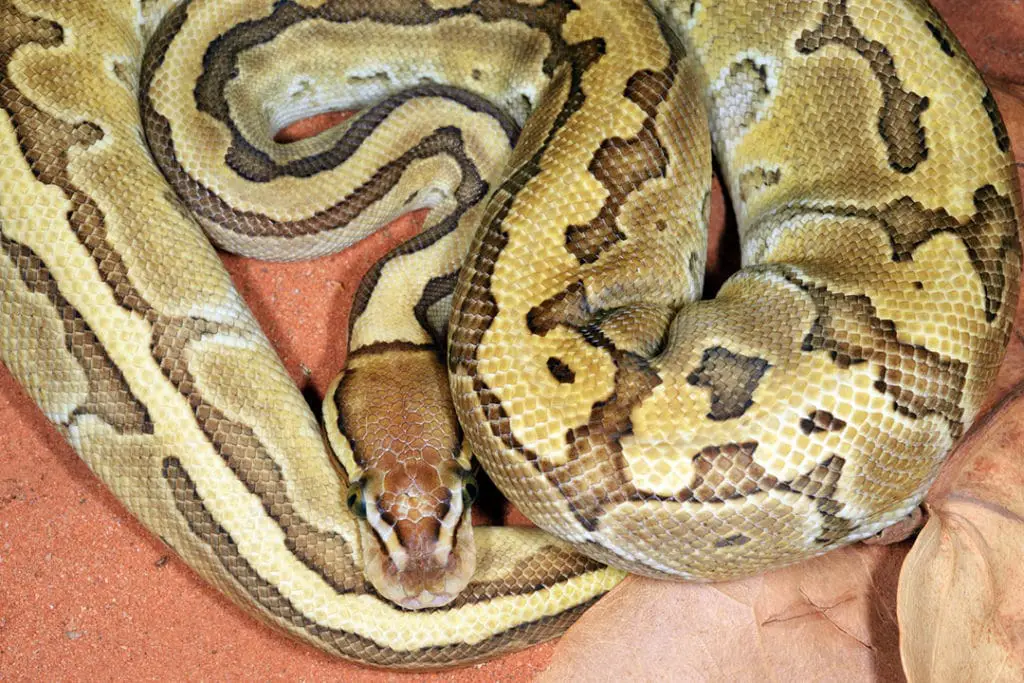
Everything you need to know about caring for Ball Pythons in captivity:
Read our Ball Python Care Sheet (Complete Setup & Guide)
If you have just acquired your snake, it is likely just scared of being in a new environment. Your snake needs at least a week to explore and adjust to its new surroundings before it will start to relax.
Once you see your snake start to do normal behaviors like hiding during the day, you should offer it a meal. Once your snake has eaten at least 2 meals without a fuss, you can start to handle it once it has time to adjust.
If your snake is scared and exhibits defensive behaviors, back off and allow it to relax.
Younger snakes will be more defensive than adults. Captive-bred adults will typically calm down sooner than a hatchling or juvenile.
Wild-caught animals will also be more defensive than captive-bred animals. They may never truly adjust to captivity, which is why you should only purchase captive-bred snakes. It can take up to a year for young snakes to adjust to handling.
Too much handling will leave your snake stressed and defensive. If your snake reacts poorly to handling attempts, give it some time to calm down.
Give it a minimum of a week and a meal before you try again. Keep handling sessions under 10 minutes and only handle your snake once or twice a week.
If your ball python is hissing at you, it is very stressed out. Ball pythons prefer to flee and hide rather than hiss at you. Stress can leave your snake with a lowered immune system or lead it to go on a hunger strike. This is very bad for your snake’s long-term health.
A poor enclosure can also lead to a stressed-out snake. Make sure the enclosure is in a place with less traffic and that other pets like dogs or cats cannot access it.
Make sure that 3 sides of the tank are opaque.
You can use basic craft paper or buy special backing meant for reptile enclosures if you want a more natural look. If your snake feels less observed, it will be less stressed. Make sure you have at least 2 hides that the snake will fit under completely on each side of the enclosure.
Fill any empty space with decorations like greenery or climbing structures. Otherwise, follow a care sheet to make sure your snake has the right temperature, humidity, and substrate. A snake in a good enclosure will feel more relaxed since it doesn’t want to escape as much.
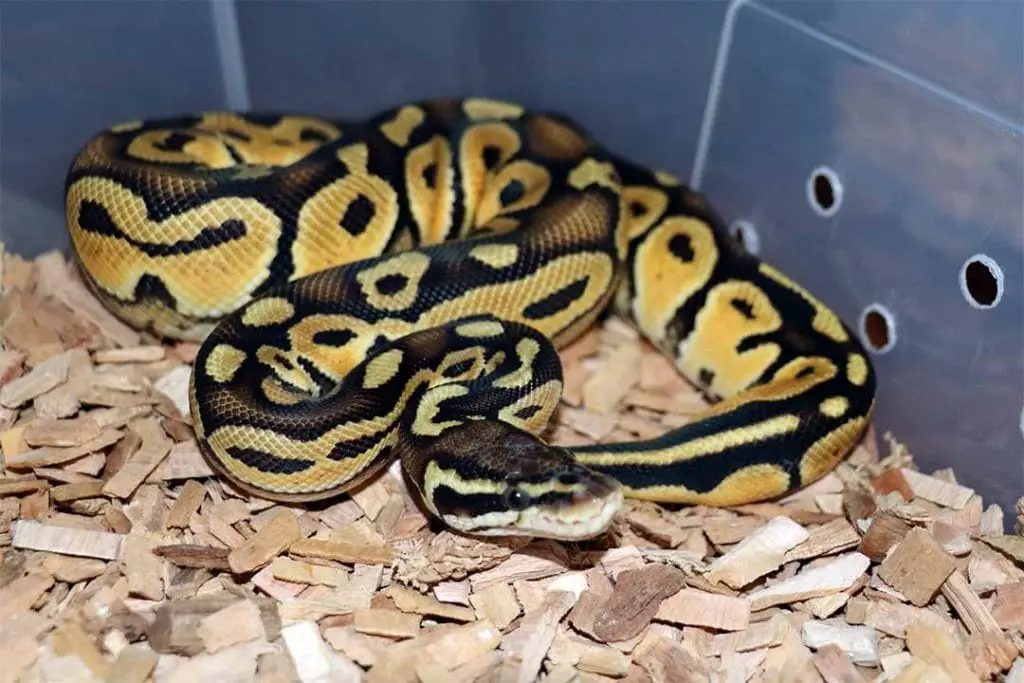
Remember, if your snake feels that its enclosure isn’t a safe place, it will want to find somewhere else. Since it can’t escape, it will become stressed.
Your snake may also just be shedding. Ball pythons can’t see well when they are shedding. Look to see if your snake’s eyes are cloudy or blue.
If you see this, your snake can’t see you. Since it can’t track your movements easily, your snake will likely feel more defensive. It may hiss to tell you to leave it alone.
Many owners note that snakes move less during shed, so the process may be uncomfortable as well. This will make your snake more irritable.
Females that are getting ready to breed or have eggs will also be aggressive. Female ball pythons ball up around their eggs to incubate them.
They will stay with their eggs until they hatch. If you try to move or handle the eggs, your snake will likely become upset and try to guard its eggs. If you decide to let a female incubate her own clutch, be prepared that she will likely hiss or try to bite you.
If your snake is suddenly hissing at you when nothing has changed, your snake may be ill. A snake that is in pain is more likely to lash out even at an owner it recognizes.
Check your snake carefully for changes in skin tone, temperature, muscle tone, and respiration.
Look for any signs of injury and make sure there is no stuck shed. Check for signs of parasites as well, since your snake might have picked some up from a meal.
While frozen prey passes on parasites less often, it can still happen. If you source from a place where the prey animals were sick or weren’t frozen quickly, your snake may get sick.
Make sure you take your snake to the vet for help and inform them of your concerns. Any change in behavior is a sign to be concerned about. Snakes naturally hide signs of illness so by the time you see changes, your snake may already be very sick.
Summary
Ball pythons hiss to communicate that they want to be left alone. It is a warning that your snake is feeling unsafe and may try to bite. If your snake is hissing, leave it be unless you suspect an illness. If you have any questions or comments, be sure to leave them below.
